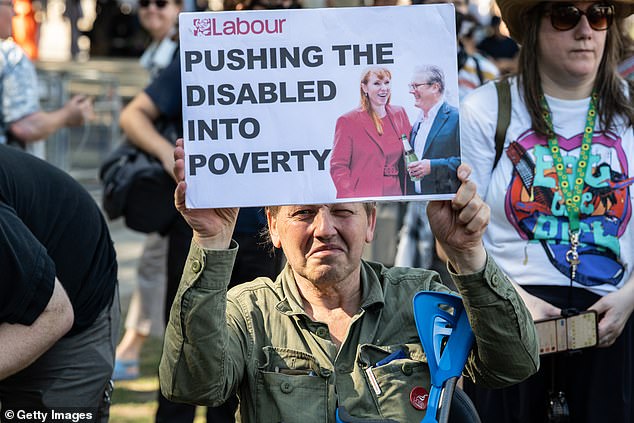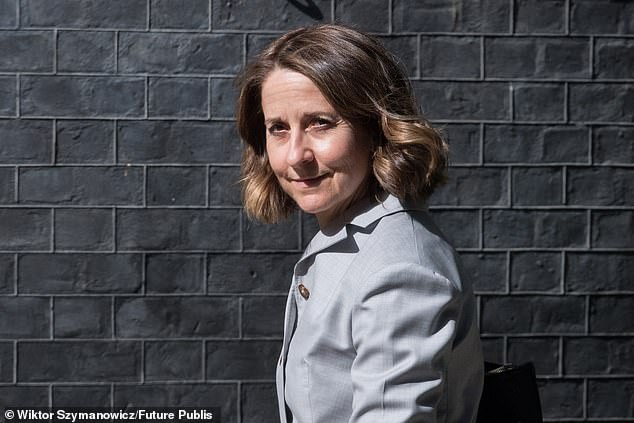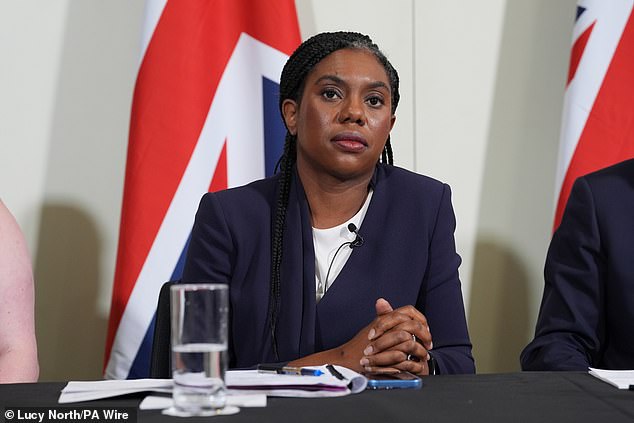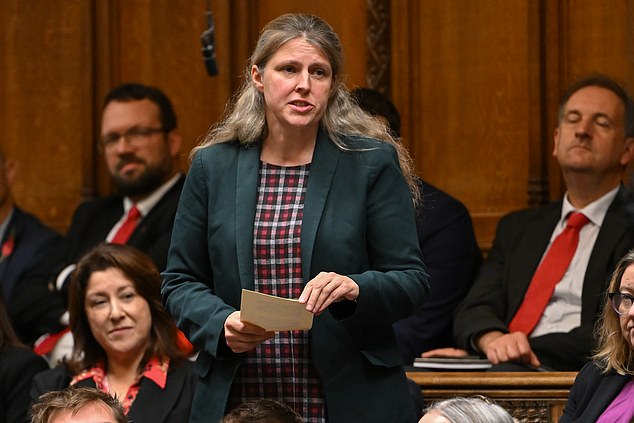Sir Keir Starmer will be hit by the biggest rebellion of his premiership on Tuesday.
His attempts to win over welfare Bill rebels fell flat yesterday in a major blow to his authority just days before the anniversary of his landslide election victory.
Dozens of his MPs are expected to abstain or vote against his plans to restrict disability benefits.
He faces the backlash even though he tried to stave off the rebellion by offering concessions that will halve the planned savings from £5billion to £2.5billion by the end of the decade.
Despite the PM’s climbdown, in the Commons several Labour MPs still urged his Government to withdraw the Universal Credit and Personal Independence Payment Bill rather than allow a vote on Tuesday.
Many rebels felt a Commons statement by Work and Pensions Secretary Liz Kendall, in which she set out the concessions, had made matters worse, with a string of Labour MPs clashing with her over the timing of the reforms.
Estimates by the Department for Work and Pensions (DWP) that the latest proposals would still push 150,000 extra people into poverty by 2030 angered many, even though it was lower than the 250,000 envisaged in the original plans.
On Monday night, the Tories confirmed they would vote against the Bill, despite supporting a welfare spending crackdown.

Sir Keir Starmer is set to be hit by the biggest rebellion of his premiership

Disabled people protest in Parliament square against welfare reforms

Many rebels felt a Commons statement by Work and Pensions Secretary Liz Kendall, in which she set out the concessions, had made matters worse, with a string of Labour MPs clashing with her over the timing of the reforms
Conservative leader Kemi Badenoch said: ‘The welfare budget is out of control. Spending on health and disability benefits was £40billion just before Covid. It is projected to be £100billion by 2030.
‘What Labour is doing is not serious welfare reform. Last week, we challenged them to cut the welfare budget, to bring in measures that would get people back into work, and to assure us there wouldn’t be new taxes to fill the gap.
‘Keir Starmer has not met those challenges. In fact, he’s watered down the small savings Labour were making. We have a Government incapable of governing. For that reason, we will be voting against the Bill.’
Under the Government’s original proposals, daily living assessments were to be tightened for millions with physical or mental health conditions who claim Personal Independence Payment (PIP).
But ministers were forced to dilute the proposals after 126 Labour MPs threatened to vote them down.
Ms Kendall told Parliament on Monday that the new eligibility criteria to be introduced in November 2026 will only apply to new claimants rather than those already receiving PIP.
In addition, the health-related part of Universal Credit will now increase in line with inflation rather than being frozen.

Tory leader Kemi Badenoch, pictured, confirmed they would vote against the Bill, despite supporting a welfare spending crackdown

Leading rebel Rachael Maskell MP, pictured, said: ‘I cannot countenance sick and disabled people being denied support to enable them to be independent, and 150,000 people being pushed into deeper poverty’
She insisted the new proposals would ‘ensure no existing claimants are put into poverty’.
But MPs feared a two-tier system, with those already on PIP better cared for than future claimants.
But Ms Kendall said: ‘Our benefits system often protects existing claimants from new rates or new rules, because lives have been built around that support, and it’s often hard for people to adjust.’
Labour backbenchers also criticised the timing of the reforms, as a review of the PIP system by DWP minister Sir Stephen Timms will be published too late to affect the new regime.
Ms Kendall said: ‘The review will conclude by autumn 2026 and we will then implement any changes… as quickly as possible.’
However, Labour MPs queued up to attack the Bill. Leading rebel Rachael Maskell said: ‘I cannot countenance sick and disabled people being denied support to enable them to be independent, and 150,000 people being pushed into deeper poverty. It is a matter of conscience.’
On Monday, The Guardian revealed that Ms Maskell had tabled a new ‘reasoned amendment’ designed to bring down the Bill, which had been signed by 35 Labour MPs.

Greater Manchester mayor Andy Burnham, pictured, tipped as a future Labour leadership contender, said: ‘What’s been announced is half a U-turn, a 50 per cent U-turn. I’d hope MPs vote against the whole Bill’
But 83 Labour MPs would be needed to overturn the Government’s majority. Left-winger Andy McDonald called on Ms Kendall to withdraw the Bill, saying: ‘A two-tier system will generate hardship for many and create divisions.’
Labour’s Nadia Whittome said: ‘After months of the Government ignoring disabled people, the only way meaningful co-production can take place is by pulling this Bill and going back to the drawing board.’ Fellow backbencher Ian Byrne added:
‘These so-called concessions go nowhere near far enough, and I will be voting against these cruel cuts.’
More than a dozen Labour MPs said publicly they will not support the Bill. It has been estimated as many as 50 will vote against or abstain. But party whips do not believe the rebels have the numbers to bring it down.
Greater Manchester mayor Andy Burnham, tipped as a future Labour leadership contender, said: ‘What’s been announced is half a U-turn, a 50 per cent U-turn. I’d hope MPs vote against the whole Bill.’











